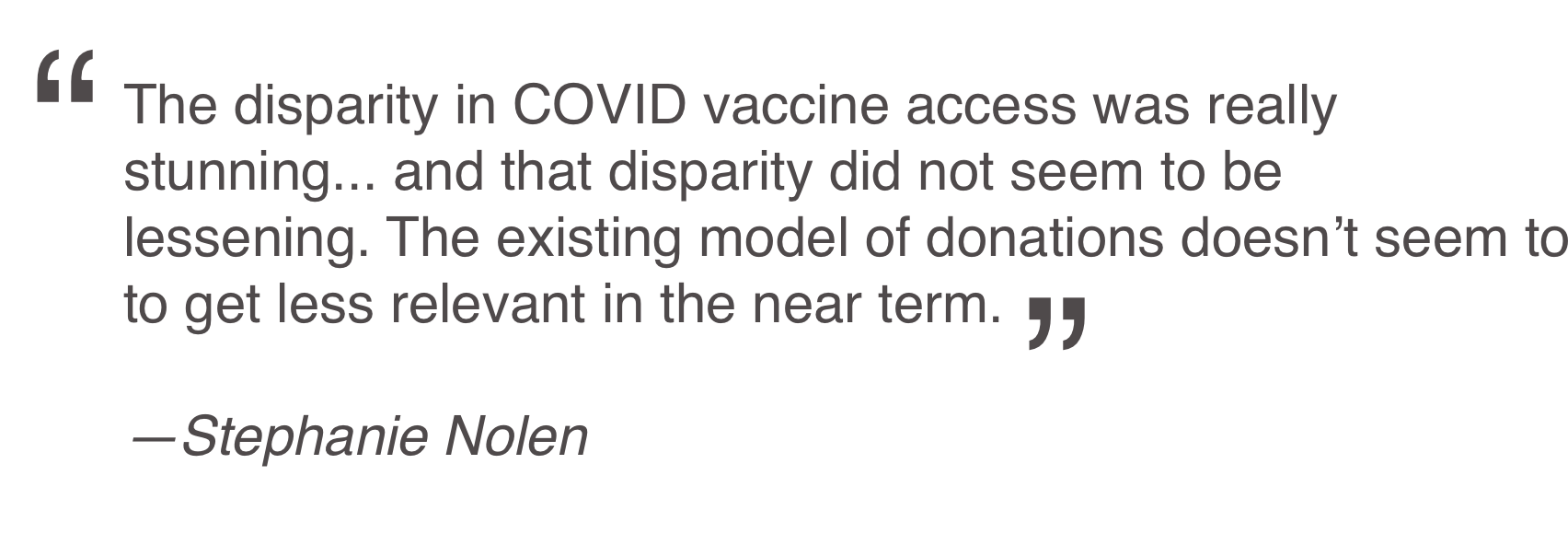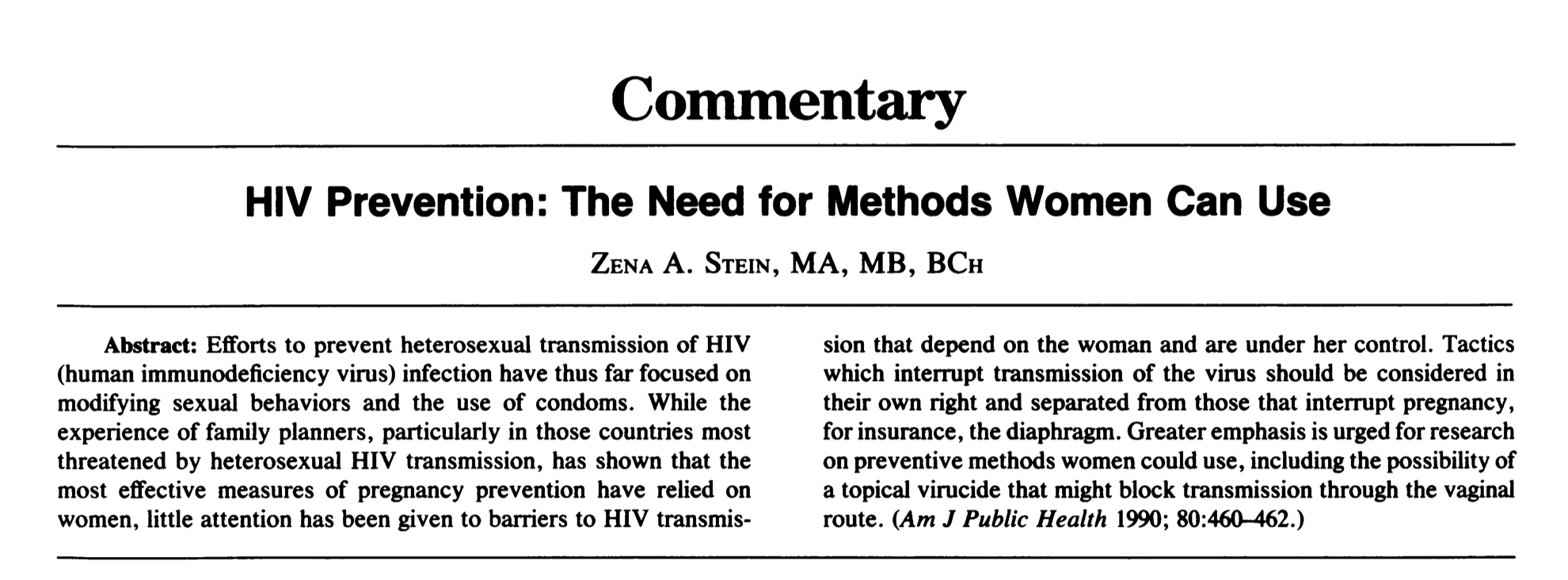By Cathy Slack, head of the HIV AIDS Vaccines Ethics Group (HAVEG), a clinical psychologist and member of the Coalition to Accelerate and Support Prevention Research (CASPR); Abigail Wilkinson, project researcher for HAVEG focused on stakeholder engagement, research ethics committees and institutional review boards; Siyabonga Thabete, project researcher focused on social psychology, consent and stakeholder engagement.
Stakeholder engagement in HIV prevention trials still isn’t perfectly implemented or evaluated despite the apparent benefits and ethical justifications for it. This is where Research Ethics Committees (RECs) and researcher actions in the ethics review process might help.
There are a number of HIV prevention products available, however, it is crucial that new effective products are researched in clinical trials. New infections were 1.5million in 2020, far exceeding global targets to end the epidemic. We know new options are needed and must be made available to the people who need it most; and there are several trials in the pipeline. Now, HIV prevention trials are complicated and involve numerous roleplayers, all of whom have the power to alter the course of a trial in some way. By engaging key stakeholders in a meaningful way, those who conduct trials can help to mitigate some of the complexities and ensure better relationships between all roleplayers.
Stakeholder engagement is encouraged by numerous ethics guidelines — UNAIDS-AVAC GPP (2011), CIOMS (2016), and UNAIDS (2021). In our desk review of ethics guidance published in JIAS (Slack et al., 2018) we found guidance documents place a high value on stakeholder engagement. We looked at CIOMS (2016), WHO (2011), UNAIDS-AVAC GPP (2011) and UNAIDS (2012) — the review was conducted prior to the release of the updated guidelines. We found three core priorities and three core practices of engagement encouraged by ethics guidance. Namely engagement should be early and sustained, broad and inclusive (involving all those affected by a trial), responsive to context and dynamic over time, as well as being adequately planned, properly resourced and underpinned by a close understanding of the context (‘formative evaluation’).
The review of engagement by RECs is also explicitly encouraged by ethic guidance. That is, ethics guidance make clear that engagement should be on the RECs radar. However, in a desk review of documents from South African RECs (Wilkinson et al., 2021) we found that RECs are missing opportunities to do more to support good engagement. While we found that some REC documents (SOPs, application forms, renewal forms, policies ) did encourage sound engagement, e.g. broad and inclusive, many RECs documents fell short of promoting high-quality engagement. For example, several application forms only ask whether researchers have received permission from institutions to collect data at a site, which is a narrow form of engagement. Also, we found that REC documents’ position on engagement is not always consistent, and alignment on this issue would send a powerful message.
Together with partnersin the Coalition to Accelerate and Support Prevention Research (CASPR), HAVEG designed an online course to help highlight how best to support excellent engagement during ethics review (SETER). This free online certificate-generating course, called SETER (Strengthening Engagement Through Ethics Review), offers an interactive exploration of the ethical underpinning of stakeholder engagement and how both researchers and RECs can best address engagement during the ethics review process for clinical trials.
Also, we interviewed 28 experts involved in various aspects of HIV prevention research and engagement including advocates, researchers, REC members, Community Liaison Officers, and Community Advisory Board members who helped to paint a picture of current issues in the field. Interviewees recognised three distinct complexities which we have termed the “three Ts” — Tokenism, Toxicity (which should be avoided) and Tailoring (which should be promoted). (Wilkinson 2021). To address the issue of token engagement, researchers and RECs should ensure that engagement plans are faithful to ethics recommendations e.g. broad, inclusive. To address the issue of ‘toxic’ engagement researchers and RECs should consider whether engagement might be inadvertently harmful or “toxic” e.g. by reinforcing power inequalities or increasing the visibility of stigmatized groups. To address the issue of ‘tailoring’ researchers and RECs should ensure that the level of engagement is calibrated to things like level of risk to participants or the level of vulnerability of participants. More is needed to manage this last issue. RECs and researchers need metrics and better guidance to inform how the level of engagement should be tailored or calibrated according to study risks and other factors.
Despite its ethical importance, engagement remains complex and the ethics review of engagement has gaps to fill. Our work takes the conversation one step further, showing some actions we can take now (such as RECs examining submitted plans for engagement with ethical guidance in mind) and some that will take more time (such as ethics guidance offering more support for tailoring the level of engagement). In both cases, advocates will be essential because ethical guidance comes to life when our voices amplify its message and work for its success.
Key Resources
- Slack, C., Wilkinson, A., Salzwedel, J., & Ndebele, P. (2018). Strengthening stakeholder engagement through ethics review in biomedical HIV prevention trials: Opportunities and complexities. Journal of The International AIDS Society. 21(S7):e25172
- Wilkinson, A., Slack, C., Crews, C., Singh, N., Salzwedel, J., & Wassenaar, D. (2021). How can Research Ethics Committees help to strengthen stakeholder engagement in health research in South Africa? An evaluation of REC documents. South African Journal of Bioethics and Law, 14(1), 6-10. doi:10.7196/SAJBL.2021.v14i1.698
- Wilkinson, A., Slack, C., Thabethe, S., & Salzwedel (2021). “It’s almost as if stakeholder engagement is the annoying ‘have-to-do’: Recognizing ‘tokenism’ in stakeholder engagement – Perceptions of key role-players in HIV prevention. Poster at HIV Research For Prevention (R4P) (Virtual), 27 January – 4 February
- Strengthening Engagement Through Ethics Review (2020). See https://engage.avac.org

